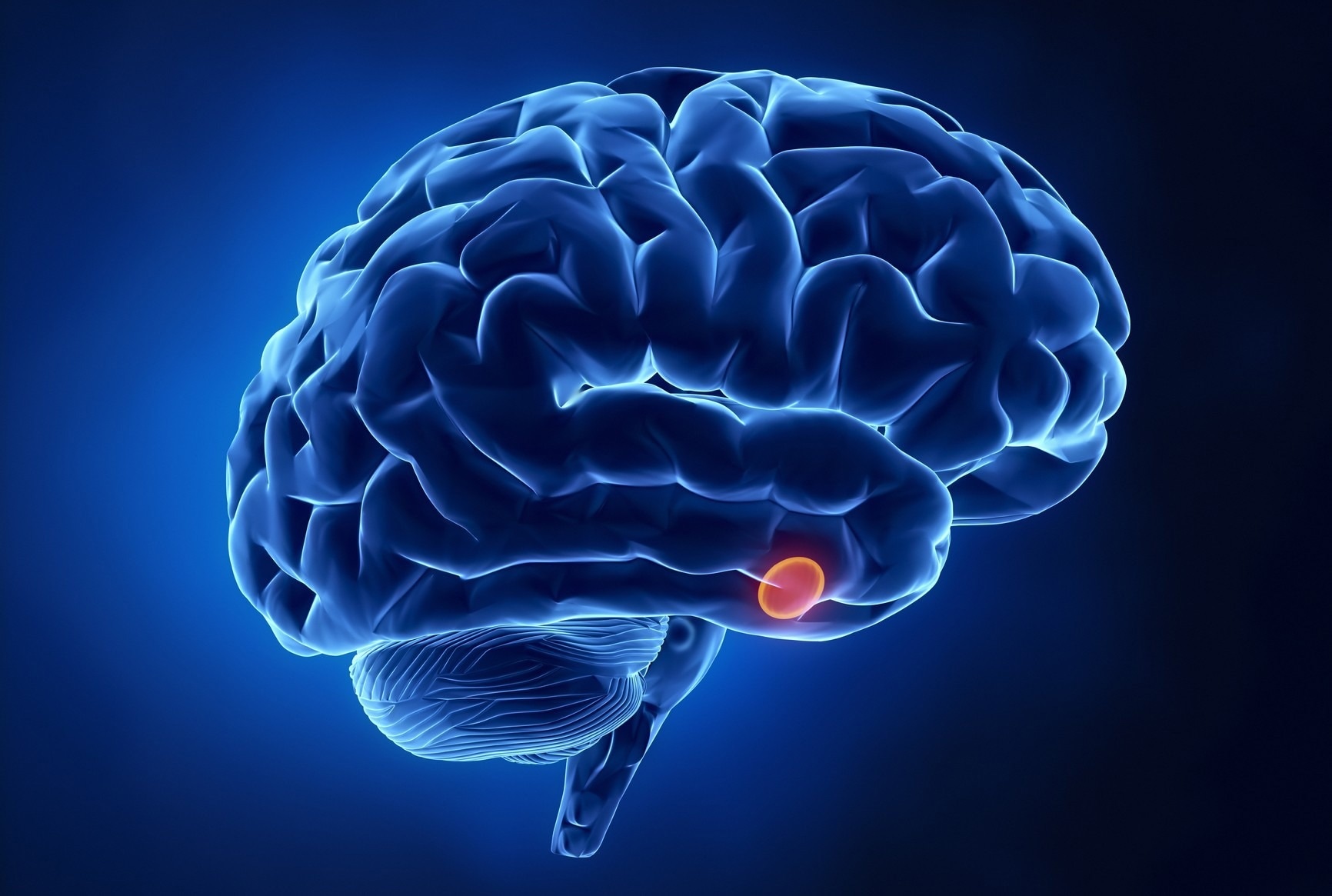Multicenter Worldwide Examine, Led by Cedars-Sinai and Introduced at American Affiliation of Neurological Surgeons Scientific Assembly, Finds Medical Administration Yields Comparable Outcomes to Surgical procedure

New analysis led by Cedars-Sinai discovered that for sufferers who expertise sudden bleeding or dying of a tumor on the pituitary gland (proven right here), medical administration is as efficient as surgical procedure usually. Picture by Getty.
The primary potential research evaluating outcomes in sufferers with pituitary apoplexy—sudden bleeding or dying of a pituitary tumor—discovered that sufferers managed medically fared in addition to these handled surgically within the majority of instances. The multicenter worldwide research, led by Cedars-Sinai investigators, was offered immediately on the American Affiliation of Neurological Surgeons Scientific Assembly in Los Angeles.
“That is the very best knowledge so far on the query of surgical procedure versus medical administration in sufferers with this uncommon however severe situation,” mentioned Adam Mamelak, MD, co-director of the Pituitary Heart and director of the Useful Neurosurgery Program at Cedars-Sinai and lead writer of the research. “It demonstrates in a potential, managed approach what earlier research had begun to recommend, specifically that pituitary apoplexy could be very not often a surgical emergency.”
The pituitary gland, situated on the base of the mind, controls the operate of a number of hormone-producing glands. Pituitary apoplexy happens when a benign tumor within the pituitary gland space begins to bleed or dies, inflicting the tumor to develop and press on the encircling mind tissues. This, in flip, causes signs resembling extreme headache, fatigue, confusion, and imaginative and prescient issues together with imaginative and prescient loss. Mostly, these tumors are undetected previous to the apoplexy occasion.
To alleviate the stress on mind tissues and the signs of apoplexy, sufferers can both have the tumor surgically eliminated or be handled with medicines to alleviate ache and different signs whereas they look ahead to it to naturally shrink over time. In each instances, sufferers typically additionally want hormone alternative remedy, Mamelak mentioned.
Pituitary apoplexy has lengthy been thought of an emergency requiring fast surgical therapy to attain finest outcomes. Small retrospective research, the place investigators look again at beforehand collected knowledge, have steered that pituitary apoplexy sufferers have equally good outcomes with medical administration, however these observations have didn’t considerably change medical apply.
Whereas we have seen a rising pattern towards clinicians being slightly extra snug with medical administration of pituitary apoplexy, normally, most sufferers nonetheless find yourself getting surgical procedure. These small retrospective research actually didn’t transfer the needle that a lot.”
Adam Mamelak, MD, Director of Useful Neurosurgery Program, Cedars-Sinai
To offer a extra stable foundation for medical resolution making, Mamelak and fellow investigators from the Division of Neurosurgery and the Pituitary Heart at Cedars-Sinai—in addition to colleagues from 11 different medical facilities in North America, Japan, South Korea and Europe—developed the Pituitary Apoplexy Surgical Timing & Outcomes Registry (PASTOR).
The registry enrolled 97 sufferers with pituitary apoplexy on the time of analysis and in contrast outcomes for the 67 sufferers who had surgical procedure with these for the 30 sufferers whose signs have been medically managed. Any such potential registry permits investigators to attract stronger conclusions as a result of knowledge assortment is similar for all contributors.
Investigators discovered that:
- Size of hospital keep was the identical for sufferers who had surgical procedure as for many who didn’t.
- Sufferers who had surgical procedure skilled the identical outcomes whether or not they had surgical procedure immediately or days after the onset of signs.
- There have been no statistically important variations in hormone operate, imaginative and prescient or high quality of life between the 2 teams of sufferers three and 6 months after therapy.
Mamelak famous that sufferers experiencing extra extreme imaginative and prescient signs have been extra more likely to have surgical procedure than these experiencing milder signs, however that surgical procedure didn’t essentially result in higher outcomes.
“Cedars-Sinai and the opposite websites participating on this research all have skilled pituitary neurosurgery and endocrinology groups, which might assist account for the constructive outcomes skilled by surgical sufferers,” mentioned Keith L. Black, MD, chair of the Division of Neurosurgery and the Ruth and Lawrence Harvey Chair in Neuroscience at Cedars-Sinai. “A wealth of stable analysis tells us that outcomes from pituitary surgical procedure are instantly tied to surgical expertise.”
Mamelak mentioned that additional analysis particularly taking a look at outcomes for individuals with visible area deficits can be wanted to find out whether or not surgical procedure is finest in these instances. In the meantime, the present findings might particularly profit medical facilities that would not have the experience to surgically deal with pituitary tumors.
“These findings take among the urgency out of managing these instances,” Mamelak mentioned. “Clinicians at these facilities now know that they’ll safely handle these sufferers medically and switch them when it’s affordable and out there, or permit sufferers to forgo surgical procedure solely if they’re snug with that.”
Additionally on the convention:
- David Skaggs, MD, government vice chair of the Division of Orthopaedics at Cedars-Sinai and director of Pediatric Orthopaedics at Cedars-Sinai Guerin Youngsters’s, can talk about the way forward for pediatric backbone surgical procedure.
- Wouter Schievink, MD, director of the Microvascular Neurosurgery Program at Cedars-Sinai, can talk about analysis and administration of headache in sufferers with spontaneous intracranial hypotension, by which the stress of cerebrospinal fluid contained in the cranium is decrease than regular.
- Chirag Patil, MD, director of the Heart for Neurosurgical Outcomes Analysis at Cedars-Sinai, can talk about outcomes and mortality in older sufferers who bear surgical evacuation of subdural hematoma, the place a blood clot locations stress on the mind.